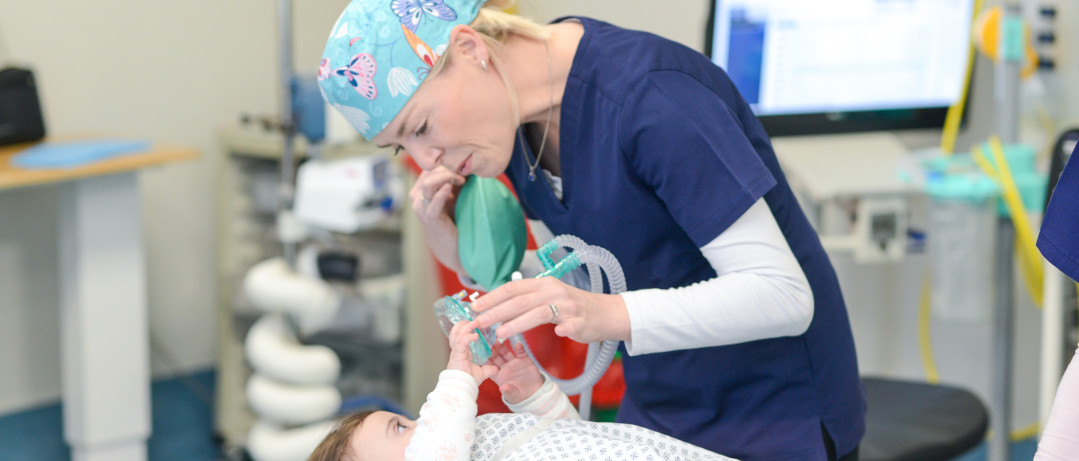Meet The Team
Paediatric Anaesthesia
At Cape Anaesthetics Pty Ltd., our specialist Anaesthesiologists are highly skilled in ensuring that your child or baby is cared for and comforted throughout their surgery and anaesthesia. We recognise that the peri-operative period of a child’s surgery can be stressful for the entire family, and we aim to address any concerns you or your child may have.
This page provides important information to reassure and better inform you about what to expect before, during, and after your child’s anaesthesia. Please read it carefully and do not hesitate to reach out if you have further questions.
What Is Paediatric Anaesthesia?
Paediatric anaesthesia is the specialised care of infants, children, and adolescents during surgery or medical procedures. The anaesthetic is tailored to your child’s age, size, medical history, and specific procedure, ensuring safety and comfort at every step.
Types of Anaesthesia Used for Children
General Anaesthesia:
- Your child will be fully unconscious and pain-free during the procedure.
- Administered via a mask, breathing tube, or intravenous (IV) medication.
Local Anaesthesia:
- A small area of the body is numbed for minor procedures, usually with sedation.
Regional Anaesthesia:
- An area of the body (e.g., a limb) is numbed with a local anaesthetic injection.
- Often combined with sedation or general anaesthesia.
Sedation:
- Medication is given to help your child feel calm, drowsy, or lightly asleep.
Preparing for Your Child’s Anaesthesia
Comprehensive Medical History
Please be prepared to provide detailed information about your child’s:
- Medical History: Acute or chronic illnesses, medications, allergies, and recent infections.
- Birth and Development: Complications during pregnancy or delivery, developmental milestones, feeding difficulties, or hospitalisations. Please bring their clinic card if available.
- Family History: Any family reactions to anaesthesia, medical conditions, or allergies.
- Special Considerations: Inform us if your child is adopted, a Jehovah’s Witness, or unable to take certain forms of medication (e.g., syrups or suppositories).
Starvation Guidelines
It is crucial that your child’s stomach is empty before anaesthesia to avoid serious complications. Please adhere strictly to these guidelines:
- Solid food, fizzy drinks, milk, and non-dairy milk: Stop 6 hours before surgery.
- Formula milk: Stop 6 hours before surgery.
- Breast milk: Stop 4 hours before surgery.
- Clear fluids (e.g., water, clear apple juice, Energade): Stop 2 hours before surgery.
Ensure your child drinks clear fluids up to 2 hours before surgery, as this can ease the waiting period and improve their recovery. Avoid leaving food or drinks within their reach preoperatively.
On the Day of Surgery
Before Surgery
- You may accompany your child to the theatre for moral support.
- Bring their favourite toys, books, or digital devices to distract them during the waiting period.
- Talk to your child about the process to help reduce anxiety.
During Surgery
- Your child’s heart rate, breathing, oxygen levels, and other vital signs will be closely monitored throughout the procedure.
After Surgery
- Your child may feel disoriented or cry upon waking. This is not necessarily due to pain but rather confusion in a new environment.
- Your anaesthetist will assess your child’s recovery before they are discharged to the ward.
- Bring a bottle of milk or juice and a change of clothes for your child, as these can help them settle after the procedure.
Pain Management
Pain relief is a priority after surgery. Your anaesthetist will provide a tailored plan, which may include:
- Oral or intravenous pain medications.
- Regional anaesthesia to keep the surgical area numb for an extended period.
You will also receive clear instructions for managing your child’s pain at home.
Consent for Paediatric Anaesthesia
- Children under 12 years: A parent or legal guardian must give consent for surgery and anaesthesia.
- Children over 12 years: By law, children over 12 can give their own consent if deemed mature enough, but parental guidance and involvement are encouraged.
Potential Risks and Complications
Paediatric anaesthesia is very safe, but as with any medical procedure, complications can occur.
Common Complications (1-10% of cases)
- Nausea and vomiting.
- Sore throat.
- Drowsiness or grogginess.
- Bruising at the IV site.
Rare Complications (Less than 1 in 1,000 cases)
- Allergic reactions to medications.
- Hoarse voice or voice changes.
- Difficulty urinating.
Very Rare Complications (1 in 10,000 to 1 in 200,000 cases)
- Awareness during anaesthesia.
- Nerve injuries.
- Severe allergic reactions.
Our anaesthetists take every precaution to minimise risks and ensure your child’s safety.
Reassuring Your Child
Children often take their emotional cues from their parents. The more reassured and informed you are, the more comfortable your child will feel.
- Explain that the procedure is to help them and that they will not be alone.
- Let them know a parent or familiar adult will accompany them to the theatre and that they will wake up in a safe place.
If you have any questions or concerns about your child’s anaesthesia, preparation, or recovery, please contact us. Our team is here to support you and your family throughout the process.
We wish all our little patients and their families a safe and smooth journey through surgery.

